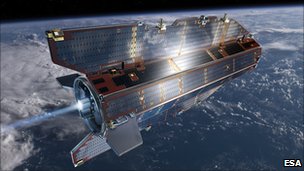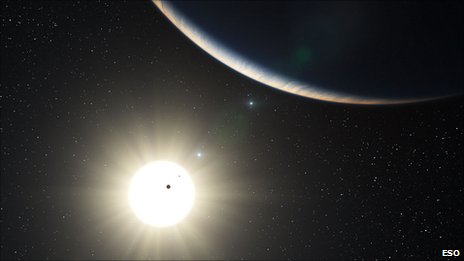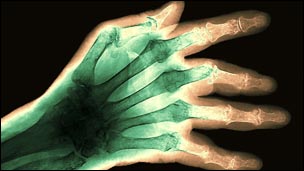Login form
Science
Data blow to gravity satellite
 A flagship European Earth observation satellite has been struck by a second computer glitch and cannot send its science data down to the ground.
A flagship European Earth observation satellite has been struck by a second computer glitch and cannot send its science data down to the ground.
The Goce spacecraft is on a mission to make the most precise maps yet of how gravity varies across the globe.
In February, a processor fault forced operators to switch the satellite over to its back-up computer system.
This too has now developed a problem and engineers are toiling to make the spacecraft fully functional again.
Study measures Atlantic plastic accumulation
 A study has measured the amount of plastic debris found in a region of the
A study has measured the amount of plastic debris found in a region of the
One reason could be tighter marine pollution rules that prevent vessels dumping their waste at sea.
The team said monitoring the free-floating plastic also provided an insight into the behaviour of ocean surface currents.
They found plastic, most pieces measuring no more than a few millimetres, in more than 60% of 6,136 samples collected by dragging fine-meshed nets along the ocean's surface.
Rich exoplanet system discovered
 Astronomers have discovered a planetary system containing at least five planets that orbit a star called HD 10180, which is much like our own Sun.
Astronomers have discovered a planetary system containing at least five planets that orbit a star called HD 10180, which is much like our own Sun.
The star is 127 light years away, in the southern constellation of Hydrus.
The researchers used the European Southern Observatory (Eso) to monitor light emitted from the system and identify and characterise the planets.
Arthritis protein 'guards against Alzheimer's disease'
 A protein produced in cases of rheumatoid arthritis appears to protect against the development of
A protein produced in cases of rheumatoid arthritis appears to protect against the development of
In the Journal of Alzheimer's Research study, mice with memory loss given the protein fared better in tests.
A synthetic version of GM-CSF protein is already used as a cancer treatment.
Top eight cancer signs pinpointed
 The eight unexplained symptoms most closely linked to cancer have been highlighted by researchers.
The eight unexplained symptoms most closely linked to cancer have been highlighted by researchers.
The
The other symptoms are: rectal blood, coughing up blood, breast lump or mass, difficulty swallowing, post-menopause bleeding and abnormal prostate tests.
Cancer Research
